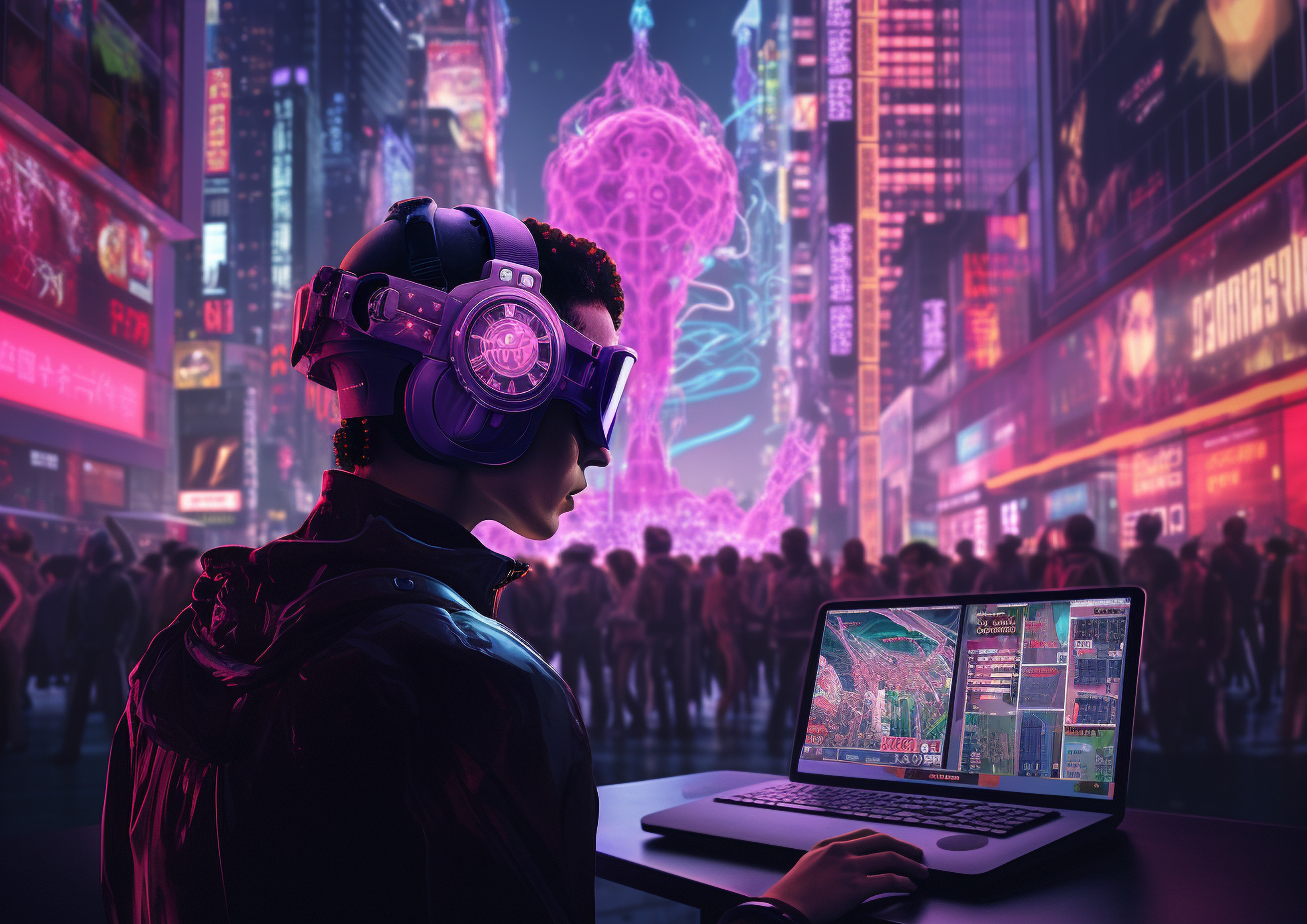
The Future of AI: Emerging Trends and Predictions for the Next Decade
Artificial Intelligence (AI) has rapidly evolved over the past few decades, revolutionizing industries and reshaping how we interact with technology. As we look to the future, AI promises to unlock even greater potential, offering new solutions to global challenges and enhancing both productivity and creativity. In this article, we’ll explore the key trends that are set to define the future of AI, from autonomous systems to AI-driven healthcare, as well as ethical considerations that will guide its development.
Trend 1: AI and Machine Learning Integration in Every Industry
As AI technology continues to evolve, its integration into various industries is becoming more widespread and essential. From healthcare to finance, AI-driven solutions are enabling companies to leverage data in new and innovative ways. Machine Learning (ML), a subset of AI, allows systems to learn from data patterns and improve their predictions over time, leading to more accurate insights and enhanced decision-making.
AI in Healthcare
In healthcare, AI-powered tools are assisting in diagnostics, streamlining administrative tasks, and providing personalized treatment plans. Predictive analytics models are being used to analyze patient data and detect diseases earlier, leading to better outcomes. AI is also making waves in drug discovery, reducing the time it takes to develop new medications by analyzing massive datasets more efficiently than human researchers.

AI in Finance
In the financial sector, AI is transforming how businesses approach risk management, fraud detection, and customer service. AI algorithms are used to analyze market data and predict trends, allowing investors to make informed decisions. Additionally, AI chatbots are being deployed to enhance customer experience, offering real-time support and personalized financial advice.
AI in Manufacturing and Supply Chain
The manufacturing industry is also benefiting from AI, particularly in predictive maintenance, where AI systems can forecast equipment failures before they occur. AI is optimizing supply chain operations by automating logistics and improving the efficiency of warehouse management, resulting in cost savings and faster delivery times.
Trend 2: The Rise of Autonomous Systems
Autonomous systems represent a significant advancement in AI, offering the potential to revolutionize industries such as transportation, logistics, and agriculture. From self-driving cars to autonomous drones, these systems rely on AI to make real-time decisions, navigate complex environments, and operate with minimal human intervention.
Self-Driving Cars and AI-Powered Transportation
One of the most notable developments in autonomous systems is the rise of self-driving vehicles. Companies like Tesla, Waymo, and others are investing heavily in AI to create vehicles capable of navigating urban and rural environments without human input. These cars use advanced sensors, computer vision, and deep learning algorithms to make split-second decisions, enhancing safety and efficiency on the road.

Autonomous Drones and Robotics
AI-powered drones are also making their mark, particularly in sectors such as agriculture, where they can be used to monitor crop health, manage irrigation, and even plant seeds. Autonomous drones are already being used for delivery services, with companies like Amazon exploring drone technology to speed up shipping times. Similarly, AI is driving advancements in robotics, particularly in industries like manufacturing, where autonomous robots are being deployed for complex, repetitive tasks.
Trend 3: AI-Powered Personal Assistants
The future of AI is closely tied to the development of AI-powered personal assistants, which have become integral parts of our daily lives. Virtual assistants like Siri, Alexa, and Google Assistant are growing more sophisticated with each iteration, offering users a range of features, from smart home control to personalized recommendations.
The Evolution of AI Assistants
Initially, personal assistants were limited to simple voice commands and tasks. However, advances in natural language processing (NLP) and machine learning have enabled these assistants to understand more complex queries, provide nuanced responses, and even predict user needs. The future of AI assistants involves deeper integration with devices, offering a seamless user experience that extends beyond mobile phones and into all areas of life, including homes, cars, and workplaces.

Future Capabilities of AI Assistants
AI-powered assistants will likely move beyond task automation to become proactive partners in everyday decision-making. They may offer health advice based on fitness data, recommend investments based on financial trends, or even handle more personal tasks, such as scheduling social activities or providing emotional support. These advancements will position AI assistants as essential tools for both personal and professional productivity.
Conclusion
AI is set to play an even greater role in shaping the future, with innovations spanning healthcare, education, cybersecurity, sustainability, and more. As AI becomes more integrated into every aspect of our lives, it is crucial to develop systems that are not only powerful and efficient but also ethical and fair. By addressing these challenges, we can unlock the full potential of AI and create a future where humans and machines collaborate to achieve remarkable progress.
FAQs:
-
What is the future of AI in healthcare? AI is expected to revolutionize healthcare through improved diagnostics, personalized treatments, and AI-powered medical tools that enhance decision-making and patient care.
-
How will AI impact jobs in the future? While some jobs may be automated, AI will also create new roles that focus on creativity, complex problem-solving, and human-AI collaboration.
-
What are the ethical challenges of AI? Major ethical challenges include algorithmic bias, data privacy, transparency, and ensuring that AI systems are developed responsibly and fairly.
-
What role will AI play in cybersecurity? AI will enhance cybersecurity by enabling faster threat detection, predictive analytics, and real-time monitoring of potential vulnerabilities.
-
How is AI transforming the gaming industry? AI is improving gaming experiences by creating smarter NPCs, generating complex game worlds, and enhancing player interactions for a more immersive experience.
